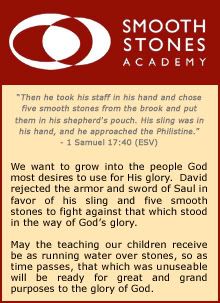I have been working on this for a week and a half and like many projects, it took longer than expected. Here are our history plans for SOTW1 aligned with History Scribe: Ancient Egypt (AE), Ancient China (AC) and Ancient Greece and Rome (AG&R).
I also created copywork for Chapters 11-42. Jessica from
Trivium Academy shared her copywork for Chapters 1-10 and was kind enough to allow me to post them here. I am not sure how much copywork Thatcher will be ready for this year, but I wanted to have it ready just in case. Also, I may need to shorten/simplify the sentences if he is getting frustrated.
Here was my thinking in creating the copywork:
- If the History Scribe page already gave the most important details of the passage, I usually tried to make the copywork for that selection include some other interesting fact or tidbit.
- If there was no HS page to align with that lesson, I tried to make the copywork be more of a "main idea."
- You could probably get more HS pages to align with SOTW1 from their World Religions and Christianity packs but I was content to start here. If anyone finds more pages to align from one of these other packs, please share!
- Feel free to use these as a starting point but modify them to fit your needs! I will probably be changing them up as I go as well. :) This was my first time to do my own copywork so I was about halfway in before I got the hang of it. Lol!
Ch. 1 - The Earliest People
* History Scribe - none
* Copywork - Nomad means, "a person who wanders or roams around."
Ch. 2 - Egyptians Lived on the Nile River
* History Scribe - AE p. 7, Archaic Period/AE p. 17, The Nile River
* Copywork - Ancient Egyptians lived near the Nile as it provided water and excellent soil for growing food.
Ch. 3 - The First Writing
* History Scribe- AE p. 25, Papyrus/AE p. 27, Writing
* Copywork - The word Mesopotamia means "between two rivers."
and/or
Papyrus was ancient Egypt's greatest export and revolutionized the way people kept valuable information.
Ch. 4 -The Old Kingdom of Egypt
* History Scribe - AE p. 8, Old Kingdom/AE p. 18, The Pyramids/AE p. 29, Mummies
* Copywork - The Great Pyramid in Giza is the oldest and largest of the three pyramids and is the only remaining member of the Seven Wonders of the World.
Ch. 5 - The First Sumerian Dictator
* History Scribe - none
* Copywork - The cities in Sumer fought each other until Sargon conquered them and joined them into an empire.
Ch. 6 - The Jewish People
* History Scribe - none
* Copywork - The twelve tribes of Israel were identified by the names of the twelve sons of Jacob, whom God renamed Israel: Joseph, Judah, Issachar, Benjamin, Levi, Naphtali, Gad, Asher, Simeon, Dan, Zebulun, Reuben.
Ch. 7 -Hammurabi and the Babylonians
* History Scribe - none
* Copywork - The Babylonians were the first to divide a day into twenty-four hours and to divide an hour into sixty minutes.
Ch. 8 - The Assyrians
* History Scribe - none
*Copywork - You will never find that life for which you are looking. . When the gods created man they allotted to him death, but life they retained in their own keeping. - The Epic of Gilgamesh.
Ch. 9 - The First Cities of India
* History Scribe - none
* Copywork - The people of the Indus Civilization achieved great accuracy in measuring length, mass and time.
Ch. 10 - The Far East: Ancient China
* History Scribe - AC p. 4, Farming Advances
* Copywork - Huang Di united the villages of the Yellow River Valley.
Ch. 11- Ancient Africa
* History Scribe - none
* Copywork -Life in the Sahara Desert is both difficult and dangerous, but long ago this part of Africa wasn't even a desert.
Ch. 12 - The Middle Kingdom of Egypt
* History Scribe - AE p. 9, Middle Kingdom
* Copywork - Egypt had become weak, but when Amenemhet became Pharaoh he made it strong again.
Ch. 13 - The New Kingdom of Egypt
* History Scribe - AE p. 10, New Kingdom/ AE p. 15, Famous Pharaohs/ AE p. 30, Valley of the Kings
* Copywork - They Egyptians were polytheists which means they worshiped many gods.
Ch. 14 - The Israelites Leave Egypt
* History Scribe - none
* Copywork - Moses and the Israelites were monotheists. They believed in and worshiped only one God.
Ch. 15 - The Phoenicians
* History Scribe - none
* Copywork - The Phoenicians were the greatest sailors in the Ancient world; they were also famous for their blown glass and purple dye.
Ch. 16 - The Return of Assyria
* History Scribe - none
* Copywork - Ashurbanipal is remembered as the king who collected books to create the first library. His library was in Nineveh.
Ch. 17 - Babylon Takes Over Again!
* History Scribe - none
* Copywork - Nebuchadnezzar built the Hanging Gardens of Babylon, one of the Seven Wonders of the World.
Ch. 18 - Life in Early Crete
* History Scribe - AG&R p. 4, Minoan Culture
* Copywork - The Minoans settled on the island of Crete in the Mediterranean Sea.
Ch. 19 - The Early Greeks
* History Scribe - AG&R p.5 Mycenaen Culture
* Copywork - The Mycenaean Greeks had weapons made of bronze; they were defeated by the Dorians who built stronger weapons of iron.
Ch. 20 - Greece Gets Civilized Again
* History Scribe - AG&R p. 7, Phoenician Culture/AG&R p. 8, Greek Mythology/AG&R p. 9, The Olympic Games
* Copywork - Homer's poem, the Odyssey, tells of the adventures of Odysseus as he tries to return home after the Trojan War.
Ch. 21 - The Medes and the Persians
* History Scribe - none
* Copywork - Cyrus was King of the Medes and the Persians, and he was known as a good and fair ruler.
Ch. 22 - Sparta and Athens
* History Scribe - AG&R p. 11, Colonization of Greece
* Copywork - Plato was a famous philosopher from Athens.
Ch. 23 - The Greek Gods
* History Scribe - AG&R p. 6, The Trojan War
* Copywork - Zeus was the chief god of the Greeks.
Ch. 24 - The Wars of the Greeks
* History Scribe - AG&R p.13, The Persian Wars/AG&R p. 14, The Peloponnesian War/AG&R p. 30, The Acropolis
* Copywork - Athens and Sparta joined together to defeat Persia.
Ch. 25 - Alexander the Great
* History Scribe - AG&R p.16, Alexander the Great
* Copywork - Pharos, the largest lighthouse in the world, was built in Alexandria and is the third of the Seven Wonders.
Ch. 26 - The People of the Americas
* History Scribe - none
* Copywork - There are three Americas: North, Central and South. The Nazca tribe lived in South America in modern-day Peru.
Ch. 27 - The Rise of Rome
* History Scribe - AG&R p. 10, Founding of Rome/AG&R p. 12, Republic of Rome
* Copywork - Rome grew to be the largest and strongest empire the world had ever seen.
Ch. 28 - The Roman Empire
* History Scribe - AG&R p. 17, Architectural Advances/AG&R p. 33, Roman Mythology
* Copywork - Zeus was king of the Greek gods; the Romans called him Jupiter. The Greek god of the sea was Poseidon, but the Romans called him Neptune.
Ch. 29 - Rome's War With Carthage
* History Scribe - AG&R p. 18, Rise of the Roman Empire
* Copywork - After fighting for over 100 years, Rome finally defeated Carthage and their great leader, Hanibal.
Ch. 30 - The Aryans of India
* History Scribe - none
* Copywork - An Indian prince, Siddhartha, created a new religion called Buddhism after seeing the misery created by Hinduism's caste system.
Ch. 31 - The Mauryan Empire of India
* History Scribe - none
* Copywork -King Aoska followed Budah's teachings and built his empire through honesty, truthfulness and mercy rather than violence.
Ch. 32 - China: Writing and the Qin
* History Scribe - AC p. 8, Warring States/AC p. 10, Qin Dynasty/AC p. 11, The Great Wall
* Copywork - The Chinese were the first ancient people to use printing to produce books.
Ch. 33 - Confucius
* History Scribe - AC p. 9, Confucius
* Copywork - Feel kindly toward everyone, but be intimate only with the virtuous. - Confucius
Ch. 34 - The Rise of Julius Caesar
* History Scribe - AG&R p. 19, The Emperors
* Copywork - After returning from Spain, Caesar became one of Rome's consuls thus forming a triumvirate (three leaders).
Ch. 35 - Caesar the Hero
* History Scribe - AG&R p. 36, The Senate and the Forum
* Copywork - Caesar had become the most powerful man in all of Rome, but he was killed by Senators who though he had become too strong.
Ch. 36 - The First Roman Prince
* History Scribe - AG&R p. 20, Pax Romana
* Copywork - Caesar's nephew, Octavion, was renamed Augustus Caesar and ruled for 30 years after his uncle's death.
Ch. 37 - The Beginning of Christianity
* History Scribe - AG&R p. 21, The Christ
* Copywork - Blessed are the peacemakers for they will be called children of God. - Jesus
Ch. 38 - The End of the Ancient Jewish Nation
* History Scribe - none
* Copywork - When Christians revolted against Roman authority the emperor sent soldiers to destroy the Temple and all of the city of Jerusalem.
Ch. 39 - Rome and the Christians
* History Scribe - AG&R p. 22, The Roman Empire Declines
* Copywork - Constantine became a Christian and moved the capital of the Roman empire from Rome to Constantinople.
Ch. 40 - Rome Begins to Weaken
* History Scribe - AG&R p. 24, The Roman Empire Splits
* Copywork - Even after Diocletian divided the Roman Empire into two parts, the armies couldn't fight off the invaders that continued to attack its borders.
Ch. 41 - The Attacking Barbarians
* History Scribe - none
* Copywork - Attila the Hun was called, "The Scourge of God" by the Romans.
Ch. 42 - The End of Rome
* History Scribe - AG&R p. 25, Western Empire Ends
* Copywork - Earth is the only planet in our solar system whose name is not derived from Roman mythology.




























